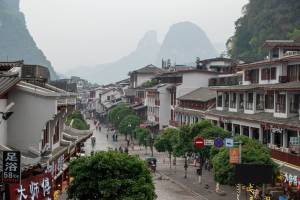Despite earlier expectations of a rapid rebound in China’s economy after three years of strict “zero-COVID” lockdowns, recent data reveals a slowdown in retail sales, industrial production, and investment in July.
Analysts Express Concerns Over China’s Economic Slowdown
Aggregate demand has also decreased, causing concerns for the world’s second-largest economy. Economists attribute these setbacks to a resurgence of COVID-19 cases, supply chain disruptions, and growing global economic uncertainties.
Consequently, the Chinese government may need to implement more targeted economic stimulus measures to support growth and ensure a stable recovery for the nation.
Experts Weigh in on Factors Impacting China’s Economy
Tao Wang, author of Making Sense of China’s Economy and a former economist at the International Monetary Fund, provides insight into the issues affecting China’s economic situation.
Wang notes that China’s property recovery stalled in the second quarter due to a dramatic drop in housing sales and starts. Additionally, local governments tightened fiscal expenditures because of financing difficulties, further hampering growth.
China is experiencing a slowdown in fixed-asset investments
These factors have led to a slowdown in fixed asset investments, particularly in infrastructure projects that traditionally drive China’s economic growth. Wang believes that China’s economic recovery necessitates a strategic shift towards addressing these underlying issues, such as resolving financing challenges and revitalizing the real estate market to prevent the worsening of the current situation.
Chinese Officials Vow to Introduce Supportive Policies
China’s high-ranking officials have pledged to implement more supportive policies to stabilize the economy. Future guidelines aim to increase consumer spending, strengthen infrastructure investment, and improve job opportunities to offset the adverse effects of economic instability.
Encouraging innovation and nurturing domestic industries will also significantly promote economic growth and reduce reliance on external markets.
Projected Growth and Potential Property Sector Impacts
Wang anticipates quarter-to-quarter growth of 4-4.5% in the third and fourth quarters, resulting in annual GDP growth of around 5% for the year. However, if the property sector is unstable, the economy may not recover as expected, failing to reach the 5% target.
Unstable property sector impact on vital industries
In the event of a dangerous property sector, the effect on vital industries, such as construction and housing, could lead to an economic slowdown. Addressing these challenges and implementing effective policies to stabilize the property market will ensure that the economy remains on track to achieve the desired growth rate.
The Ongoing Property Downturn and Its Origins
China’s ongoing property downturn began with the government’s property restrictive measures introduced in 2020-2021. These actions aimed to curb speculation and stabilize the property market, which has seen rapid growth and soaring prices in recent years.
However, these regulations have led to lower demand, causing a significant slowdown in property sales and development and raising concerns about the broader implications for the Chinese economy.
External Economic Challenges Exacerbate Property Market Struggles
The decline in China’s property market has been worsened by other factors, such as a slowdown in global growth, ongoing trade disputes, and the potential for monetary policy tightening in developed economies.
Uncertainties surrounding Chin’s geopolitical tensions
Additionally, uncertainties surrounding geopolitical tensions and struggling emerging markets have exacerbated the situation, creating a challenging economic environment. To overcome these obstacles, governments and businesses must adapt and introduce strategic measures that promote growth, cooperation, and innovation.
Frequently Asked Questions
What are the main factors contributing to China’s economic slowdown?
China’s economic slowdown is primarily due to a resurgence of COVID-19 cases, supply chain disruptions, and growing global economic uncertainties. Other factors include the stalling of China’s property market recovery, local governments tightening fiscal expenditures, and a slowdown in fixed asset investments.
What are the primary concerns related to China’s struggling property market?
China’s struggling property market has led to decreased demand, resulting in a significant slowdown in property sales and development. This slowdown could impact vital industries such as construction and housing, potentially leading to broader economic challenges.
How does the external economic environment impact China’s property market and economy?
External factors such as slowdowns in global growth, ongoing trade disputes, potential monetary policy tightening in developed economies, geopolitical tensions, and struggling emerging markets have worsened the decline in China’s property market and created a challenging economic environment for the country.
What policies and strategies do Chinese officials plan to implement in response to the economic slowdown?
Chinese officials plan to introduce supportive policies to stabilize the economy. These policies aim to increase consumer spending, strengthen infrastructure investment, improve job opportunities, encourage innovation, and nurture domestic industries to promote economic growth and reduce reliance on external markets.
What is the projected growth for China’s economy in the upcoming quarters and for the year?
Analyst Tao Wang anticipates quarter-to-quarter growth of 4-4.5% in the third and fourth quarters, resulting in annual GDP growth of around 5%.
However, if the property sector does not stabilize, the economy may not recover as expected, and it could fail to reach the 5% target.
First Reported on: npr.org
Featured Image provided by: Lian Rodriguez, Pexels – Thank you!













